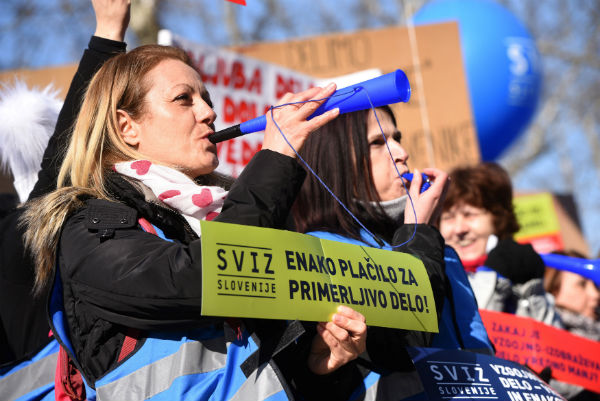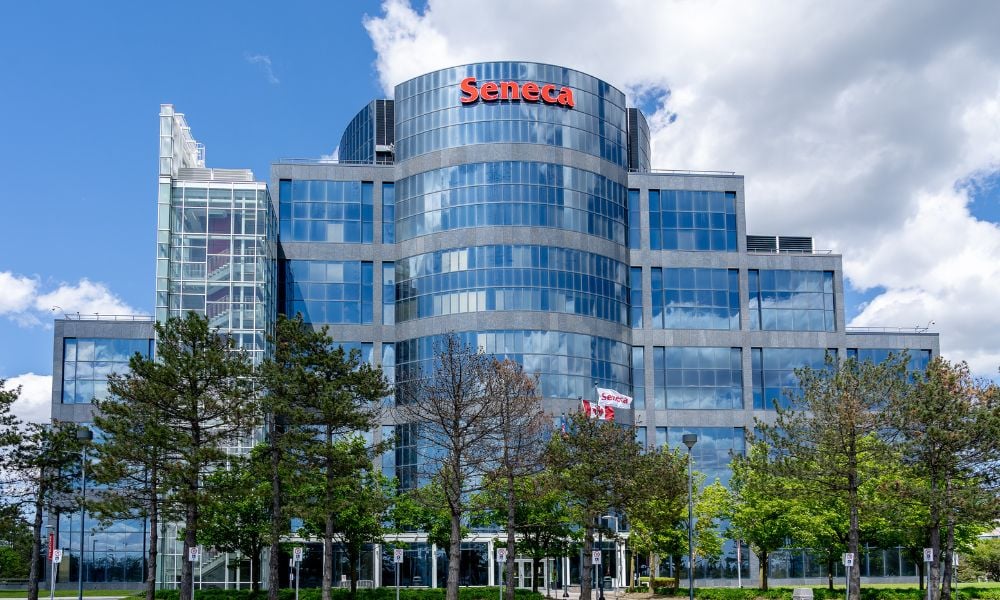Follows earlier job action from police, others

LJUBLJANA (Reuters) — Most schools in Slovenia were closed on Wednesday as some 40,000 teachers held a one-day strike, the latest in a week of protests by public sector workers demanding more pay amid stronger economic growth.
Police officers began a strike on Monday and nurses staged a two-hour walkout on Tuesday. Last month about 30,000 public sector employees took to the streets calling for higher wages.
About 20,000 teachers from all over the country flooded the snow-covered centre of Ljubljana on Wednesday, blowing whistles and holding banners, many of which mocked Public Administration Minister Boris Koprivnikar.
The minister is also the government's lead negotiator with trade unions and has drawn criticism from protesters for being away on a work trip to Dubai this week.
"I cannot live only from love for my profession," one banner said. "We educated you, where did we go wrong?" said another.
"We want better payment as our wages are low although we work a lot and well," a protester Marko Basej, who teaches mathematics at a high school in Ljubljana, told Reuters.
The government has so far refused the public sector unions' demands for wage hikes, saying these would amount to almost 1 billion euros (US$1.24 billion) per year. It argues such an increase could not be justified by Slovenia's productivity growth and could threaten the planned fiscal consolidation.
However, Education Minister Maja Makovec Brencic told reporters on Wednesday that some of the demands for more pay were justified and that the government was in intensive talks with the trade unions.
Analysts say the unions' demands also reflect the expectation that the government might be more generous ahead of a national election expected in June.
"We demand that the average teacher's wage be increased by about 10 per cent as teachers are now paid significantly less than other people with similar education, like doctors and those who work in public administration," Sandi Modrijan, a spokesman of teachers' trade unions SVIZ, told Reuters.
The head of the SVIZ, Branimir Strukelj, told protesters another strike would follow on March 14 unless the government agreed to a wage hike.
Slovenia imposed restrictions on public sector wage hikes during a financial crisis in 2012. Not all of these have been lifted and unions argue that wages should be much higher given the improved economy.
"Wages of teachers from kindergartens to high schools have to be raised as a lot has been taken from us during the crisis," said Katarina Vrhovec who teaches at an elementary school in Zuzemberk, about 50 kilometres southeast of Ljubljana.
The government plans to end 2018 with a budget surplus of 0.4 per cent, versus a deficit of some 0.8 per cent last year. It expects the economy to expand by 3.9 per cent this year versus some 4.4 per cent in 2017, boosted by exports and investments.




